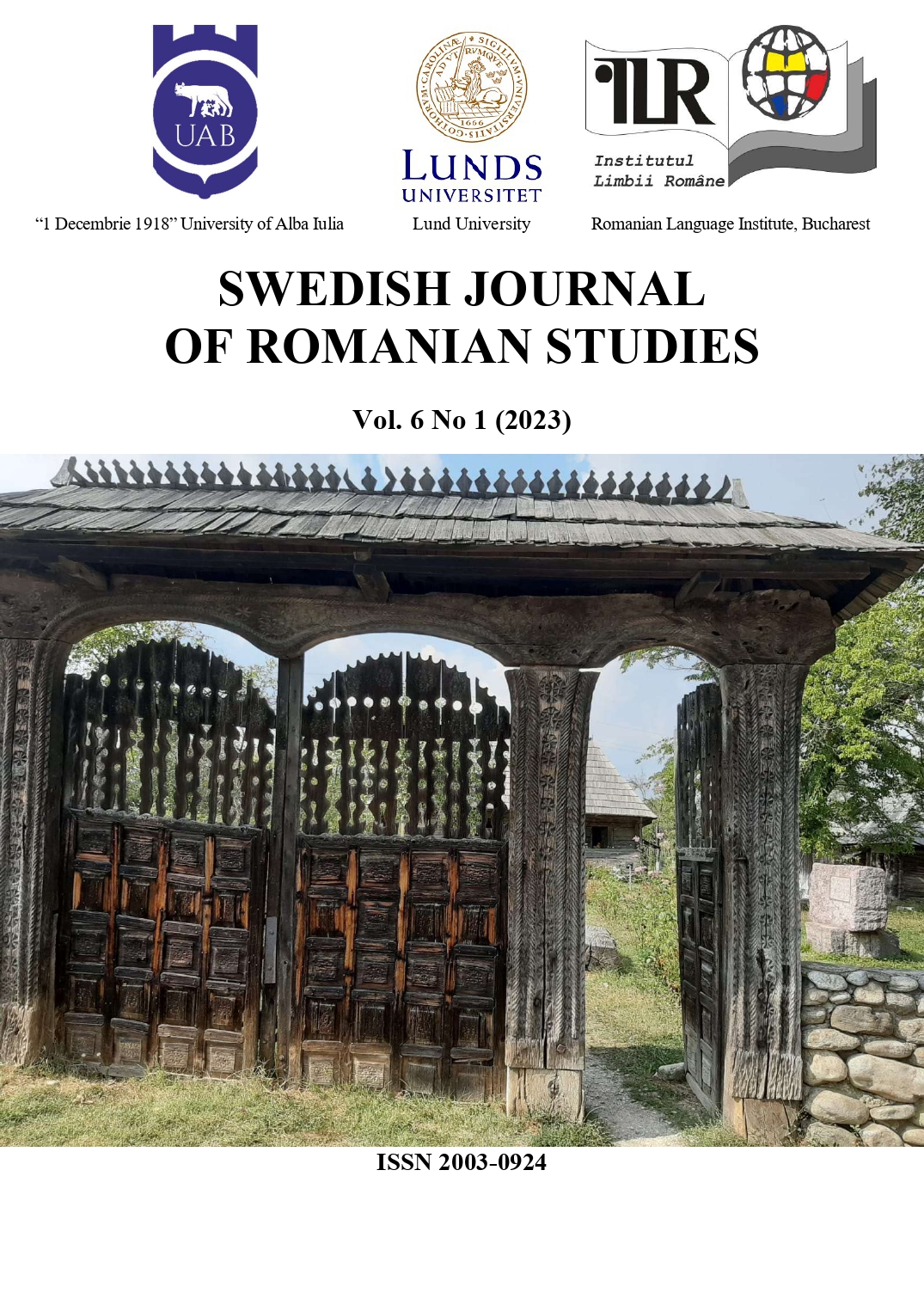Case studies in Romanian teacher education: flipped classroom and microteaching opportunities
DOI:
https://doi.org/10.35824/sjrs.v6i1.24899Keywords:
Romanian teacher education, heterarchical student-teacher relationships, flipped classroom, microteaching, loop inputAbstract
This paper aims to problematize and conceptualize the teaching approaches used by two trainers in the Applied Linguistics MA program at the Alexandru Ioan Cuza University of Iași, Romania. Data collection was undertaken during the first semester of the academic year 2017-2018 for approximately two months during which I attended the first module of my master’s studies as a post-graduate student. The approach adopted combines a conventional literature review with the examination and discussion of two case studies incorporating post-observation field notes and teacher questionnaires for the purpose of triangulating data and methods. The paper lists findings consistent with the idea that the Romanian teacher education program helps trainees develop a reflective stance on their pedagogical practices through micro-teaching and presentation opportunities. Both courses have similar ultimate aims and rely on a non-hierarchical teacher-student relationship, using teaching and presentation sessions embedded in the training classroom to bridge the gap between theory and practice. The ultimate aim of the present study is not to persuade anyone to flip a classroom or let students embark on micro-teaching, but rather to provide potential readers with feasible resources should they decide to modify a university course or a pre-university lesson using one of the approaches described herein.
References
Bailey, K.M. (2006). Language Teacher Supervision: A Case-Based Approach. New York: Cambridge University Press.
Bîrzea, C., Neacșu, I., Potolea, D., Ionescu, M., Istrate, O., & Velea, L.S. (2006). National Report - Romania. In P. Zgaga, The Prospects of Teacher Education in South-East Europe. Ljubljana: Pedagoška Fakulteta. 437-485.
Calderhead, J., & Shorrock, S.B. (1997). Understanding Teacher Education - Case Studies in the Professional Development of Beginning Teachers. London: The Falmer Press.
Candy, P.C. (2000). Reaffirming a proud tradition - Universities and lifelong learning. In Sage Publications. 101-125.
Entwistle, N., Skinner, D., Entwistle, D., & Orr, S. (2000). Conceptions and Beliefs about “Good Teaching”: An Integration of Contrasting Research Areas. Higher Education Research and Development, 5-26.
Freeman, D. (2016). Educating Second Language Teachers. Oxford: Oxford University Press.
Freeman, D. (1989). Teacher training, developing and decision-making: A model of teaching and related strategies for language teacher education. In TESOL Quarterly. 27-45.
Green, L.S., Banas, J.R., & Perkins, R.A. (2017). The Flipped College Classroom: Conceptualized and Re-Conceptualized. Switzerland: Springer International Publishing.
Ali, H. (2011, April). A comparison of cooperative learning and traditional lecture methods in the project management department of a tertiary level institution in Trinidad and Tobago. In Caribbean Teaching Scholar. 49-64.
Herreid, C.F., & Schiller, N.A. (2013). Case Studies and the Flipped Classroom. In Journal of College Science Teaching. 62-66.
Hrepic, Z., Zollman, D., & Rebello, S. (2007). Comparing students' and experts' understanding of the content of a lecture. In Journal of Science Education and Technology. 213-224.
Hughes, P. (2007). Learning about learning or learning to learn (L2L). In A. Campbell, & L. Norton, Learning, Teaching and Assessing in Higher Education. Developing Reflective Practice. Great Britain: Learning Matters Ltd. 9-20.
Hussey, T., & Smith, P. (2002). The trouble with lecture outcomes. Sage Publications. 220-233.
Potolea, D., & Ciolan, L. (2003). Teacher Education Reform in Romania: A Stage of Transition. In B. Moon, L. Vlăsceanu, & L.C. Barrows, Institutional Approaches to Teacher Education within Higher Education in Europe: Current Models and New Developments. Bucharest: UNESCO. 285-303.
Richards, J.C. (1998). Teaching in action: Case studies from second language classrooms. Alexandria, VA: TESOL.
Stăiculescu, C., & Păduraru, M.E. (2013). Initial teacher training in Romania - a critical view. In Procedia - Social and Behavioral Sciences. 780-784.
Velea, S., & Istrate, O. (2011). In M.V. Zuljan, & J. Vogrinc, European Dimensions of Teacher Education - Similarities and Differences. Ljubljana: Faculty of Education, University of Ljubljana, Slovenia. 271-294.
Wallace, M.J. (2000). The case for case studies. In IATEFL Research SIG and Teacher Development SIG Newsletter. 12-18.
Woodward, T. (1991). Models and Metaphors in Language Teacher Training - Loop input and other strategies. New York: Cambridge University Press.
Downloads
Published
How to Cite
Issue
Section
License
Copyright (c) 2023 Mădălina Elena Mandici

This work is licensed under a Creative Commons Attribution-NonCommercial 4.0 International License.
Authors who publish with this journal agree to the following terms:
a. Authors retain copyright and grant the journal right of first publication with the work simultaneously licensed under a Creative Commons Attribution-NonCommercial 4.0 International License that allows others to share the work with an acknowledgement of the work's authorship and initial publication in this journal.
b. Authors are able to enter into separate, additional contractual arrangements for the non-exclusive distribution of the journal's published version of the work (e.g., post it to an institutional repository or publish it in a book), with an acknowledgement of its initial publication in this journal.
c. Authors are permitted and encouraged to post their work online (e.g., in institutional repositories or on their website) prior to and during the submission process, as it can lead to productive exchanges, as well as earlier and greater citation of published work (See The Effect of Open Access).

